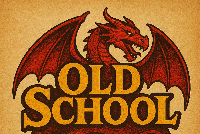Nothing is certain. But keeping it scheduled, and letting people know up front, this is the campaign, this is the setting, these are the rules, they can self filter. Many people here feel like the games are disposable, and the people are too. If it's a choice between playing D&D on a friday, and jumping their girlfriend because she decided Friday morning, she's in the mood, i have seen players message me "Yeah dude, gonna hang with the woman, you know how it is." I'm married, and my game night is my game night, and I'm not an opportunist. If I sign up for a game, I let the GM know if I can make their schedule. I message asking them what the game is what the setting is, who is playing. Where can I get the rules? What supplements is he or she using as DM? If I am going to be late to a game as player or DM, because of surprise Traffic, I get on skype and message the group, I'm gonna be a half hour late. So nobody is wondering. If as a player, I need to skip for a medical appointment, I message the DM a few days prior and on that day "I'm not going to be there, sorry, but I enjoy the game, and will be there next week." And I am. If the game is not my style, or offensive, (and I have found those latter here, a few times), I clearly state, "Sorry, I am not going to be there. I am dropping, good luck." Sometimes I get a query as to why, usually not. But, in my experience here, that's too much work for a lot of people. They join the game, and you never hear from them again. You ask for characters, and you never hear from them. They just hang out on the player list until you message them "Dropping you from the roster in 48 hours, unless you respond." I have had luck with backup players, people have waited two or three weeks to get into a game, and once in, I am not disappointed with them as a player. I have had games last for months with a pile of players and also games that were set up to be a campaign, but in the actual play it turned out the players styles were so different (many having ignored EVERYTHING I said up front about no power gaming, no Min maxing, etc) that the group just decided, no, we do not want to play any more with that guy, that pair, or each other. Games with real live female players are even more difficult because a lot of guys just do not know how to deal with female players as a player, despite women being gamers since old school D&D. I don't think women in games here seek special treatment, but I have heard of a lot of abuse against women, especially sexual harassment, even from DMs. EVEN IF you run the best game, the most popular rules set in favor this week or month, even if you got minis, maps, story, even if you are in the right exact time zone for whatever flavor of US, people are gonna come and go. I typically recruit 7 players for a 5 player game, and advertise well up front, "This is how I will run it. These are the rules. These are the standards of behavior." Still one power gamer or narcissist will join, and ignore that and do just whatever the hell they want, until players as a whole message me to remove the player, or it gets to where admonishments to clue in and be part of the team fall on deaf ears, and I remove them, because I dread the ongoing rules lawyering and confrontations which take up game time. After a few months that 7 becomes 4 or 5. I feel, overall, I have been lucky. there are good players here. But not that they are rare, but they have found games with good DMs, and are playing in them. This goes for both old veteran players, and those brand new to D&D. Young or old, and experience as a gamer or not, to me is not a factor so much as "Is this player anti-social, and a jerk, have ego problems, or are they manipulative? do they do emotional blackmail, Do they pull that whole "Unless X happens, I am quitting, when X is an exception to a rule already laid out that everyone ELSE agrees to ?" There are many of those. And they are poison. Figure out a method to test for an eliminate those, and you are good, because most of the social being players just want to show up and play a character in a fantasy world for a few hours a week, as long as it isn't too challenging or too easy, and the people playing with them are having fun, and they are having fun.

















